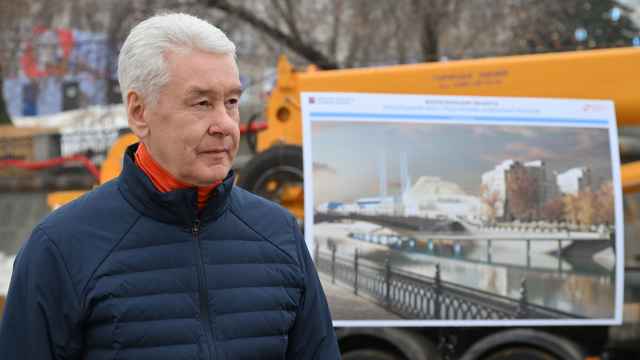Russia will launch two Glonass navigation satellites later this year to make up for the loss of three satellites in the recent Proton rocket explosion after launch from the Baikonur space center in Kazakhstan, a senior space industry official said.
"We are planning to launch two satellites from the Plesetsk space center [in northern Russia] to replenish the Glonass orbital grouping following the recent Proton-M accident," said Nikolai Testoyedov, the head of the Information Satellite Systems company, which manufactures satellites for the Glonass project.
"The first Glonass is scheduled for launch in the beginning of September, while the second will be at the end of October," Testoyedov said earlier this week.
The official added that both satellites would be launched using Soyuz rockets, which have proven to be more reliable than ill-fated Protons.
A group of 29 Glonass satellites is currently in orbit, with 24 of them in operation, three spares, one in maintenance, and one in test flight phase, according to the Federal Space Agency.
Glonass, which was officially launched in 1993, is Russia's answer to the US Global Positioning System, or GPS. It provides real-time positioning and speed data for surface, sea and airborne objects with an accuracy of one meter.
The Glonass system requires at least 18 operational satellites for continuous navigation services across the entire territory of Russia and 24 satellites to provide navigation services worldwide.
By 2020, Russia plans to have 30 Glonass-M and new-generation Glonass-K satellites in orbit, including six in reserve, the space agency says.
A Message from The Moscow Times:
Dear readers,
We are facing unprecedented challenges. Russia's Prosecutor General's Office has designated The Moscow Times as an "undesirable" organization, criminalizing our work and putting our staff at risk of prosecution. This follows our earlier unjust labeling as a "foreign agent."
These actions are direct attempts to silence independent journalism in Russia. The authorities claim our work "discredits the decisions of the Russian leadership." We see things differently: we strive to provide accurate, unbiased reporting on Russia.
We, the journalists of The Moscow Times, refuse to be silenced. But to continue our work, we need your help.
Your support, no matter how small, makes a world of difference. If you can, please support us monthly starting from just $2. It's quick to set up, and every contribution makes a significant impact.
By supporting The Moscow Times, you're defending open, independent journalism in the face of repression. Thank you for standing with us.
Remind me later.





